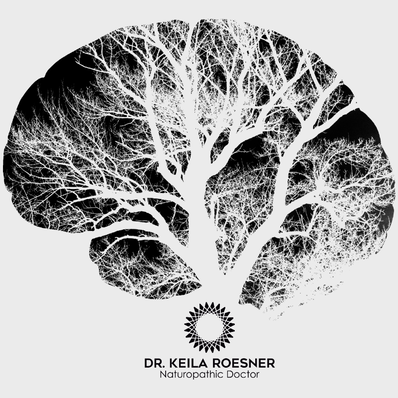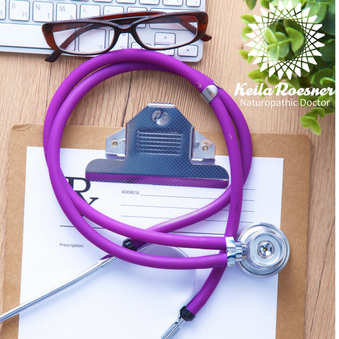Keep Your Metabolism Strong and Hormones Balanced Over The Holidays – A Naturopathic Perspective12/18/2019  Do you have big plans for January? Many of our patients say they’d like to take control of their health in 2020 (New Year, New You, right?). That often includes losing some extra pounds. However, it’s always important not to get caught up in the numbers on the scale. Instead, a good alternative goal is to focus on lowering your body fat (but only if that would help your general health) and raising your energy levels. In other words, your goal should always be to improve your overall quality of life, not to chase after an often-elusive number on a scale. No matter why you want to lose weight, it’s important to approach your New Year’s resolution with a strategy. That will raise your odds of success. (Here’s a sobering fact: About 80 percent of New Year’s resolutions are abandoned by February.) The Run-Up to the New Year Think about it. We often coast through December, eating, drinking, and neglecting our usual fitness routine. Then January arrives and we expect our body to adjust to an austere new regime. It’s no wonder that many people give up. Believe it or not, it’s possible to prime your body to get ready for January’s resolutions/yourreallife while still enjoying the holidays. That includes revving up your metabolism so it’s ready to deal with dietary changes. And it’s even possible to do this during the busy month of December. Here are some steps that can help. 7 Ways to Avoid Packing On Extra Pounds This Holiday Season
Yes, improving your metabolism can feel like a daunting task this time of the year. However, taking a few simple steps now can help get ready to meet your New Year’s resolutions head on! If you’re not sure how to begin with all these tips, the best plan is to speak with an expert! We’d be happy to help you create a unique plan that suits you and would love to have a complimentary Health Discovery Session with you. Sources:
1 Comment
 You’re careful about your health. You do your best to eat well, and you pay attention to the ways that your diet affects your energy levels....but something seems off. You’re experiencing annoying symptoms that you can’t explain. You’re often gassy and bloated, your skin may not be clear and glowing anymore, you may be ready for a nap after a meal and you wish you could remember where you put your keys. Why does your memory feel so foggy? These issues are frustrating (and often embarrassing) and they’re also very common. Many patients that come to see me are already living a fairly healthy lifestyle, but are baffled by continuing digestive issues, mysterious rashes, and low energy levels. If this sounds familiar, it may be time to take a good look at your diet. Even a “healthy” food can make you sick if your body is sensitive to it, even if you're eaten it your whole life without issues until now. For many, the food mystery becomes both frustrating and overwhelming when trying to understand what foods are nourishing you and not making you feel terrible. The good news is that you may not have to look very far to make changes that relieve your symptoms. With a bit of detective work, and a bit of help, you can map out a dietary plan that restores your well being. What are the Symptoms of Food Sensitivity? Food sensitivities can be tricky to diagnose. Symptoms can vary widely from person to person and can even be different depending on what else is happening in your body. For example, you might respond differently at different stages of your menstrual cycle, or if you’ve been under more stress or not sleeping as well. Food sensitivities can cause or contribute to:
Another reason why a food sensitivity is often a missed diagnosis is that these symptoms can be delayed up to 72 hours after a meal, so many people don’t make the connection between what they ate and how they feel. Even the most incredibly observant people can find it difficult to notice that they feel brain fog 3 days after eating a “normal” food. Similarly, it’s difficult to measure how many people suffer from food sensitivities because a lot of us don’t seek medical help, figuring that it’s “normal” to feel gassy and tired all of the time. In fact, conventional medical practitioners can be skeptical about food sensitivity symptoms, which can lead to frustration for patients. But it doesn’t have to be this way. What Causes Food Sensitivities? It’s important to recognize the difference between food allergies, food intolerances, and food sensitivities. Food allergies are immune reactions. After eating a certain food, your body’s immune system launches an attack by making its own protein, called immunoglobulin E (IgE). The next time you consume that food, your body is ready to attack again. The IgE causes your body to release a chemical called histamine, which triggers the physical symptoms of an allergic reaction. This is the type of allergy reaction one has to pollens and dander. With food, it can cause frightening anaphylaxis reactions. A food intolerance occurs when the body loses the ability to produce a certain digestive enzyme. Lactose intolerance occurs when the body cannot produce the lactase enzyme, and fructose intolerance occurs when a body cannot produce the fructase enzyme. Eating foods with lactose or fructose will then cause gas/bloating and diarrhea to occur (and can be a sign of Small Intestinal Bacterial Overgrowth).. A food sensitivity reaction occurs when you eat a food and it forms an antigen/antibody reaction. That is, a different part of your immune system binds to the food, the IgG reaction. Those immune complexes can cause intestinal and systemic problems in the body and mind. There are specialty labs that can detect this reaction. In our practice, we use Alletess Labs to identify these reactions.... and one blood draw can uncover up to 184 food sensitivity reactions! If we continue to eat that food sensitivity, the lining of the gut can become inflamed and damaged. Eventually, it can become permeable, so the undigested material “leaks” into the bloodstream. Not surprisingly, this is called “leaky gut” syndrome or intestinal hyperpermeability. What is the root cause of food sensitivities? And why are they becoming increasingly common? There are many medical reasons:
Which Foods Can Cause Food Sensitivities? Uncovering food sensitivities is a fantastic reason for seeing a Naturopathic Doctor – we have the tools to help identify if a particular food is making you sick. In addition, medical supervision can ensure your approach to food remains healthy and balanced. Research suggests that food sensitivities can be a trigger for disordered eating in some people. After all, if food is causing you pain, but you’re not sure which foods are to blame, it’s easy to associate your diet with negative experiences. How Can You Treat Food Sensitivities? At our office, we identify and address foods sensitivities with this approach:
Sometimes food sensitivities are only the tip of the iceberg and we have to go deeper and look to other causes of your symptoms. You can read more about that here. Uncovering food sensitivities is a truly a game-changer for many of our patients. If you suspect that something is off, I would love to offer you a complimentary Health Discovery session to see if our approach is right for you. Sources:
 Should you be concerned about your cognitive health? Consider these facts:
Everyone experiences some moments of “brain fog” from time to time, whether they’re trying to find their keys or are struggling to remember a name. As we age, these little moments of forgetfulness become more worrying. And in fact, the damage from Alzheimer’s can start up to 10 years before symptoms become troublesome. But stress, fatigue, and nutritional deficiencies can all contribute to cognitive issues, even without Alzheimer’s. The good news is that foggy thinking and poor memory don’t have to be a normal part of aging. Cognitive decline is not inevitable. And the steps to protecting our brain health can also help the rest of our bodies - further evidence that everything is connected when it comes to our optimum health! So what can you do to maintain peak mental fitness? Here are some of my favorite high-impact strategies: Get enough sleep. A great deal of research supports a link between brain health and adequate sleep. Scientists think the relationship may work both ways: not getting enough sleep can lead to cognitive decline, but cognitive decline can also cause sleep problems. Either way, the best approach is to be proactive. For example, avoid substances like caffeine or alcohol before bed. Practice insomnia.htmlgood sleep hygiene by sleeping in a cool, quiet room and pay attention to when the body wants to sleep. Your circadian rhythm is your natural sleep cycle, which for many people means unwinding and falling asleep around 10-10:30 pm. Fighting it and staying up later sends an adrenaline rush to your body to keep it awake. Contact our office if sleep issues interfere with daily living. You may also find that following the other tips on this list help with sleep – did I mention that it’s all connected? Focus on a plant-based diet with plenty of healthy fats. Good nutrition fuels our brain. Processed, low-nutrient foods can lead to inflammation and oxidative stress. The result can be cognitive and mood issues. Up to 95 percent of the serotonin in our bodies is produced in our gut, so what we eat can have a profound impact on our emotions and the way we think. As a result, having adequate “good” bacteria in our gut can reduce the inflammation throughout our bodies, so it’s important to eat with this in mind. Some important nutrients for brain health include:
Move to keep your brain active. Exercise is a must when it comes to brain health. Not only can cardio activities like swimming and walking ease stress, but physical activity can also increase the size of the hippocampus. That’s the part of our brain responsible for verbal memory, among other important functions. Which exercise is best? The best activity is always the one you’re most likely to do, but experts say to strive for 75 minutes of intense activity or 150 minutes of moderate activity every week. As an added bonus, exercise earlier in the day can help you sleep! Keep learning. You’re never too old to learn something new. In fact, acquiring new knowledge can help keep your brain young. One study found that adults who learned a “complex skill” such as quilting or basic coding had improved memory function after only three months. And knowing a second language (even if you learn it late in life) can help slow memory loss. My favorite is practicing piano. Relax. You’ve probably noticed that when you’re stressed, your thought process isn’t as clear as it is when you’re relaxed. Scientists confirm that even short-term stress can affect the hippocampus. It’s important to note that most studies refer to a relationship between perceived stress and memory. We all have negative events in our lives and some of these can’t be avoided. But we can change how we react to them and how we deal with daily stress. It’s possible to reframe the stress of daily life and change how we perceive it. Yoga, meditation, tai chi, and cognitive therapy are all effective ways to reduce our feelings of stress. It’s important to remember that there isn’t necessarily a “magic bullet” solution to protect your brain function. As with all elements of well-being, maximum health is the result of a holistic approach. By taking conscious steps to protect your brain health, you can minimize memory loss. Proper brain function is also linked to hormonal balance. Having an imbalance of your cortisol levels, estrogen, melatonin, pregnenolone, testosterone or thyroid can all contribute to memory loss, confusion, and issues concentrating. Testing and treatment for imbalances can help get your brain working at peak function again. And if you’ve noticed any symptoms that worry you, it’s important to check them out right away. Please schedule a complimentary Health Discovery session with our office if you have questions about your brain health! We excel at assessing the key building blocks for brain health and helping you create an individualized plan to keep you feeling sharp. Sources:
 Estrogen – it’s not a dirty word. Estrogen plays an important role through the course of our reproductive lives and beyond. It regulates our menstrual cycle, strengthens our bones, controls our cholesterol, and much more. When our estrogen levels go “out of tune” we experience PMS or menopausal symptoms. But even before menopause, varying levels of this vital hormone can wreak havoc. That’s because estrogen requires a delicate balance with other hormones. When that balance is disturbed, we can experience a wide range of frustrating symptoms. This hormonal imbalance often occurs during a particularly busy time of our lives, the period from about age 25 through to menopause. As a result, our practice sees many women who are dealing with unexplained weight gain, mood swings, and libido problems. But there is help available. A few simple steps can help you restore balanced estrogen levels and feel like yourself again. How Do You Know if You Have Estrogen Dominance? Estrogen dominance can impact many areas of our lives, with symptoms that range from subtle shifts to major disruptions in wellbeing. Many women in this age group assume these issues are a normal part of aging or a consequence of their busy schedules. Just because it is common, does NOT make it a healthy normal! Even a slight imbalance in hormone levels can lead to a number of problems. Symptoms can vary greatly by person, but often include:
Does that list look familiar? I see many women in my practice each month with complaints like these. I totally understand how frustrating they can be, especially when you’re unable to find effective treatment. And, of course, the complex relationship between estrogen and our emotions can only magnify the frustration. Who wants to feel irritated about feeling irritable? It’s not only women who can experience estrogen dominance. You may be surprised to know that men can suffer an excess of estrogen as well. In men, estrogen dominance can manifest a bit differently, with some of these symptoms being common:
What Causes Estrogen Dominance? To understand estrogen dominance, we have to consider the role of another important hormone, progesterone. Progesterone and estrogen maintain an often tricky seesaw in our bodies. Prior to menopause, the balance shifts at different stages of the menstrual cycle. Estrogen dominance isn’t necessarily a surge of estrogen, but an imbalance in that seesaw. Simply put, estrogen dominance happens when the seesaw tips to one side because there is not enough progesterone to balance out the estrogen. There’s actually no “set” number we can measure that proves an estrogen dominance diagnosis. It’s the overall hormonal profile that is important – the DUTCH test is an extremely valuable tool that I use regularly for assessing this balance. How does estrogen become dominant? A key factor is the timing. Or, to be more specific, the time of our lives. Consider a normal menstrual cycle during our reproductive years: After we ovulate mid-cycle, our bodies produce progesterone to balance out estrogen. But as we near menopause, we often have some menstrual cycles when we do not ovulate. As a result, there is not enough progesterone to balance out the estrogen. Enter estrogen dominance -- and its long list of possible symptoms. To a certain extent, estrogen dominance is a natural part of our aging process. However, recent years have seen a rise in estrogen-dominance complaints, and our busy lifestyle may be a big factor. Environmental and behavior issues can increase estrogen levels, tipping the seesaw even further. What’s to blame? Take a look at this list.
How Can You Restore Hormone Levels? Our practice can work with you to re-balance your hormonal havoc. Starting with an accurate diagnosis, we can create a lifestyle plan that works for you. As a starting point, these changes are recommended:
Do the estrogen dominance symptoms sound a bit too familiar? Please contact our clinic and we’ll get to the bottom of what’s going on and create a plan of action to bring your body back to good health. References  Is PMS ever normal? Is PMS ever normal? I had a new patient come into my office this week. A lovely, sweet young woman, she was concerned about her fertility and hormone health because since coming off the Pill, she felt "like a crazy person" 3 weeks of the month. She sat in my office and said "It's not enough. It's not fair that I only get one good week a month. What am I doing wrong?" She is right. So many women believe they have to put up with their periods. The cramps, the mood swings, the bloating (although in my books, you NEVER need an excuse to wear comfy pants!), the crappy libido... we're often told that we just need to suck it up. If we're expecting to have an average of 450 menstrual cycles throughout our lifetime (minus pregnancies) it is simply not enough to put up with feeling awful. The first step is information. Our sex-ed classes often focus so much on STI and pregnancy prevention (thankfully that's changing) and dry biology lessons that fail to teach young girls how to read their body's clues. Here's what IS normal:
Hormonal imbalances like low thyroid function, anxiety (YES, this can be caused by hormones!), heavy periods... or periods that have gone MIA or are ridiculously painful, infertility and mood swings from hell are NEVER normal. These things are common, but certainly not normal. A healthy woman that eats well, exercises the right amount for her body, gets enough rest (this is NOT just Netflix time), quality sleep and generally takes care of her body should not be experiencing these things. And she knows it. Masking it with medication is not the answer. Nor is powering through it for yet another awful cycle, or being told that she's crazy for asking questions about her ahead or being irrational or a hypochondriac. The answer is HONESTY. Has "everything" really and truly been tried? Consistently tried? For how long? If she is still drinking coffee like a Gilmore Girl or wine like a leading lady on Sex & The City, staying up too late or pretending that everything is OK because she's on the Pill "to regulate" per periods we're not being honest. Honesty with your health care provider should look like open communication, a commitment to lifestyle and dietary factors FIRST and if things are not improving, looking at the right tests. Looking outside the box where necessary. Consistent follow up and frank discussions about what is normal, what isn't. A completely personalized approach to fit YOUR needs. Coming from a 15+ year personal history of hormonal issues that resulted in so many missed periods, crazy hair loss, weight gain and terrible acne, I WISHED a physician back then would have taken this approach with me. Not that anyone was negligent... far from it. Most just didn't have the right tools. This same progressive approach that I take with women every. single. day. in my practice. The person-centred, I-actually-give-a-damn-about-you approach that helps you get back your cycle, get pregnant, age with grace, keep your sex drive and grow into the (boss) lady you are meant to be... it WORKS. If you are experiencing anything else, you may have a subtle.. or more obvious.. hormone imbalance. Your period should NOT be a nightmare. Let me help. Set up a complimentary Health Discovery Session with me. I love this video. Keep in mind that many of the symptoms we consider "normal" like bloating, acne and moodiness CAN be modified with an individualized Naturopathic plan to keep you feeling at the top of your game.  7 Steps for Optimizing Your Vitamin D and Enjoying the Sun (safely). Keila Roesner ND. 7 Steps for Optimizing Your Vitamin D and Enjoying the Sun (safely). Keila Roesner ND. I was on away on a girls’ weekend recently. A gorgeous sunny day exploring Niagara wine country (this ND enjoys a glass of wine too!), laughing our butts off and trying not to fall off our bikes. It was a perfect opportunity to work on my “base tan” for the year. As a fair-skinned gal of Irish descent… I’m prone to grow freckles and get very very pink. Unlike my husband who gets a gorgeous tan every year, I have to be careful. But I certainly don’t avoid the sun. Ever. But wait, isn’t the sun the root of all evil? Skin cancer, melanoma and awful peeling skin? If the sun going to kill me… how come my ancestors survived?  The link here is Vitamin D. Vitamin D is an essential hormone and we are designed to get lots of it by being outside in the sun, moving around outdoors and enjoying the world around us. The challenge is that many of us spend our days inside working avoiding the sun between 10-2 pm, wearing sunscreen with a high SPF every day under our makeup and long light layers we can become very deficient. This is a big deal. Vitamin D is critical for our immune system. Many of us know about Vitamin D for bone health - Vitamin D helps regulate calcium and phosphorus absorption and excretion in the body. This is why many products are fortified with a synthetic version. Run of the mill health issues like coughs, colds, allergies, flus and other common issues are related to low Vitamin D levels that compromise our immune function. Vitamin D also keeps our immune system communicating so that we reduce our risk of more serious issues like Type 2 Diabetes, osteoporosis, heart disease, cancers and other autoimmune diseases like multiple sclerosis and rheumatoid arthritis. Low Vitamin D is also related to thyroid disease, mental health issues and hormone health. Adequate vitamin D is essential for digestive health as well, and when we are deficient we get leaky gut. When we lack Vitamin D our immune system loses touch with itself and we are more likely to get sick. Who is at risk?
Where can you get it?
Next Steps:
Vitamin D keeps your brain sharp, skin glowing, immune system humming along and is an essential part of your life. Practice safe sun, but don't fear it! Keep on the sunny side, 
It is a persistent ache-in-your-bones feeling, like walking through mud every day and struggling to do the little things. It is the disorientation of not feeling like yourself for the past few weeks, months or years. It clouds your brain, steals your sense of humour and weighs heavily on your relationships. And then there’s the guilt and self-judgement about why you just can’t seem to get it together. One of the biggest struggles that people with persistent fatigue face is that outwardly they look normal. Coworkers, friends and families may offer “helpful” suggestions about being more organized or going to bed earlier (a great point, but not THE point) or completely fail to understand. Even physicians may struggle to help once the basic blood work comes back “normal”. Lifestyle factors can and do play a massive role, so it is critical to ensure that you are getting enough good quality sleep, eating well, exercising, managing stress and taking good care of yourself. Working with a therapist, registered massage therapist, personal trainer and your health team can be helpful to make sure you’re covering your bases. If you are already addressing these areas and still feel like something is missing, Naturopathic Medicine can be a great solution. The next step is digging deeper and doing a thorough investigation to determine the cause of the fatigue and how these factors might be affecting your overall health. Here are some of the most important lab tests that we run to assess the fatigue you’re experiencing. Ferritin and iron panel – ferritin, % saturation, serum iron and total iron binding
Vitamin B12
Thyroid Panel – a full panel includes TSH, free T4, free T3, reverse T3 and anti-TPO
DUTCH Hormone Test
Autoimmune and Inflammatory Markers – hs-CRP, ESR, ANA, rheumatoid factor, tissue transglutaminase IgG and/or IgA
Organic Acids Test
Other factors to consider: You know yourself best. If you feel that something is off, you are probably right. It is better to know where you stand and choose to work with a health care provider that can offer you the evaluations you need to get to the bottom of things. A thorough investigation is important, but it is even more important to have a plan in place to address what you find. Diet and lifestyle factors like how you eat, how you move, how you sleep and managing your stress will ALWAYS need to be a part of any treatment plan you undertake. It can be easy to get caught up in a complicated regimine of supplements and medications, but focusing on a strong foundation is what really determines your outcome. If you have “tried everything”, have you been consistent enough? Being fatigued IS exhausting and it is only natural to get excited about the next newest thing… but nothing will work if you don’t give it a fair shot. You need a team. The support of a partner or friend or online community can make a world of difference when you are suffering from an invisible illness. Work together with your health care providers to get the right assessments and guidance to help you recover. If you feel unsupported, unheard or like you are bothering your provider, find another professional to work with that will take your concerns seriously. Working with a Naturopathic Doctor to address the causes of chronic fatigue can be invaluable to your recovery by helping you systematically address each of the areas above and make a concrete plan based on YOU. If this sounds like you, I invite you to schedule a complimentary Health Discovery session with me to talk more about your specific concerns. Please share this article with someone you know that is suffering. In health, Click here for more information regarding the tests and services we offer.
References:
 What can help ward off a cold, lower blood pressure, reduce cholesterol, improve blood glucose and help you lose weight… and is also deliciously addictive? Garlic and Olive Oil. The basis of a Mediterranean diet. When combined, these two pantry staples make a luxurious, flavorful condiment that is pretty wicked. As long as I can remember, my father grew the BEST garlic. Every year my mother would peel baskets full of fresh heads of garlic and freeze them for easy use while cooking for the rest of the year. She would often fill a mason jar with the fresh peeled cloves and olive oil so that I wouldn’t have to buy sub-par, bland garlic. When I was at Naturopathic College, I fell in love with shawarma. Roasted meat, pickled veggies… and the heavenly sauces. Nothing better at the end of a long day. It always seemed so complicated to make so I never really tried until a few years ago. My first trial? The addictive white garlicky sauce call toum… or as I call it “Crack Sauce”. It is seriously my favorite sauce to put on almost anything. This is by far the easiest and most authentic recipe I’ve tried and it’s packed with heart-healthy olive oil and garlic. You need:
Here’s what you do:
This sauce works beautifully with roasted meat and veggies or fish. Store in a sealed contained in the fridge for up to two weeks. Eat liberally during the cold months to help keep your immune system strong. Want to really reduce your risk of getting sick? Sign up for my natural Cold & Flu Prevention program. Have YOU ever tried Lebanese Garlic sauce? Comment below! In health, Dr. Keila Roesner BHSc ND
References
 When the air starts to get a little chilly and you have a tickly in your throat… and your first thought is “Oh crap..!” what do you do? When there’s “something going around” and everyone around you has a cold, you might be exposed to any of the following viruses: Human Rhinovirus (over 100 strains!), Coronovirus (only about 5 infect humans), Human Parainfluenza Viruses, Adenoviruses and Respiratory Synctial Viruses. While there are plenty of folk remedies out there to ward off the common cold… some more effective than others. As a Naturopathic Doctor, I love working with herbs to help support the immune system, reduce congestion and speed recovery time. My favorite herbs to help fight off the common (but inconvenient!) cold include ginger, Echinacea, garlic, and andrographis. Ginger has long been used in Asia as a “warming” spice to improve circulation. Clinical studies have proven ginger to have some antiviral properties, can be effective against arthritis pain and inflammation and can be helpful for low appetite and nausea. Ginger can also help decrease menstrual cramps! And it’s always nice to sip on something warm! You need:
Here’s what you do:
Want to really reduce your risk of getting sick? Sign up for my natural Cold & Flu Support Program. In health, Dr. Keila Roesner BHSc ND
References
 Your body is ALWAYS trying to communicate with you. The problem is that most of us get so busy that we forget how to listen… so our body needs to scream to get us to pay attention. I hear it all the time. “But Dr. Keila, I’m pretty healthy..”! Meanwhile, you may be taking a few prescription medications to control your blood pressure, thyroid and that random rash that comes and goes. TUMS are in your medicine cabinet and you carry Tylenol in your purse all the time. But that’s all normal, right? Nope. Not at all. There is a BIG difference between common and normal. Common is taking a few prescription medications, having digestive issues and bad knees. Normal is having a good night’s rest, waking with energy and not requiring caffeine. Normal is being able to eat food without feeling awful afterwards, and almost never getting heartburn or headaches. Big difference. Sometimes our body needs a reset. To clear the clutter and figure out what actually is going on. Here are 10 major signs your body is not functioning “normally” (even though they may be common!).
A good detox should help you address all of these things. It is not meant to “fix” things, but to help your body reset and tune out some of the noise so that you can actually figure out what the heck is going on. Do any of these sound like you? Comment below! If you are tired of these common, but definitely NOT normal signs, here’s three free you can do:
If you found this article interesting please share. In health,
|
Top 75 Naturopath Blogs & Websites For Naturopathic DoctorsAuthorDr. Keila Roesner is a Naturopathic Doctor. When not treating patients she is also an enthusiastic barefoot-strolling, music-loving, yoga-doing kitchen wiz - who also happens to be a wrestling fan. Categories
All
|
Let us take you from hormonal to whole.
|
Dr. Keila Roesner, BHSc ND
Naturopathic Doctor, Hormone Warrior and Your Wellness Cheerleader 247 Church Street, Stratford ON N5A 2R7 (519) 273-0900 [email protected] |
|
















 RSS Feed
RSS Feed